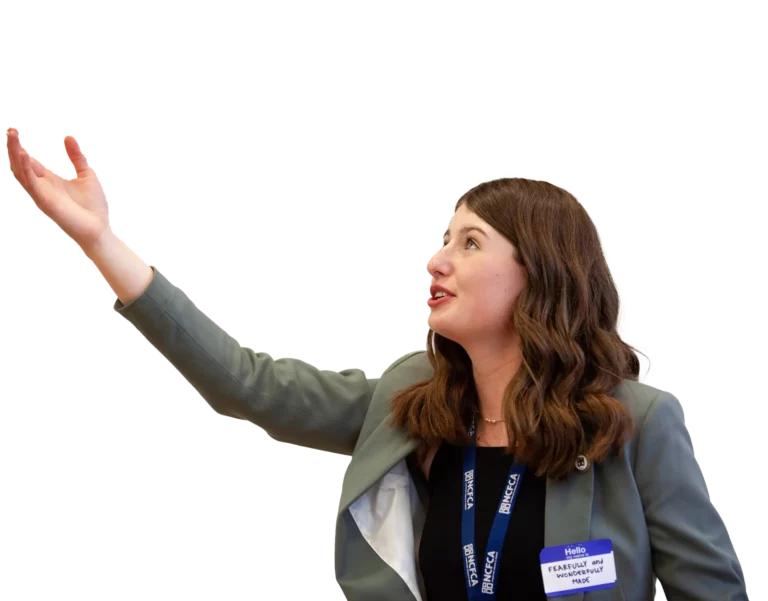Welcome to Digital Presentation!
In this event, competitors get to deliver a prepared speech with digital visual aids. They learn how digital tools can enhance audience engagement and understanding– and inevitably, they learn how to gracefully handle a few tech glitches along the way.
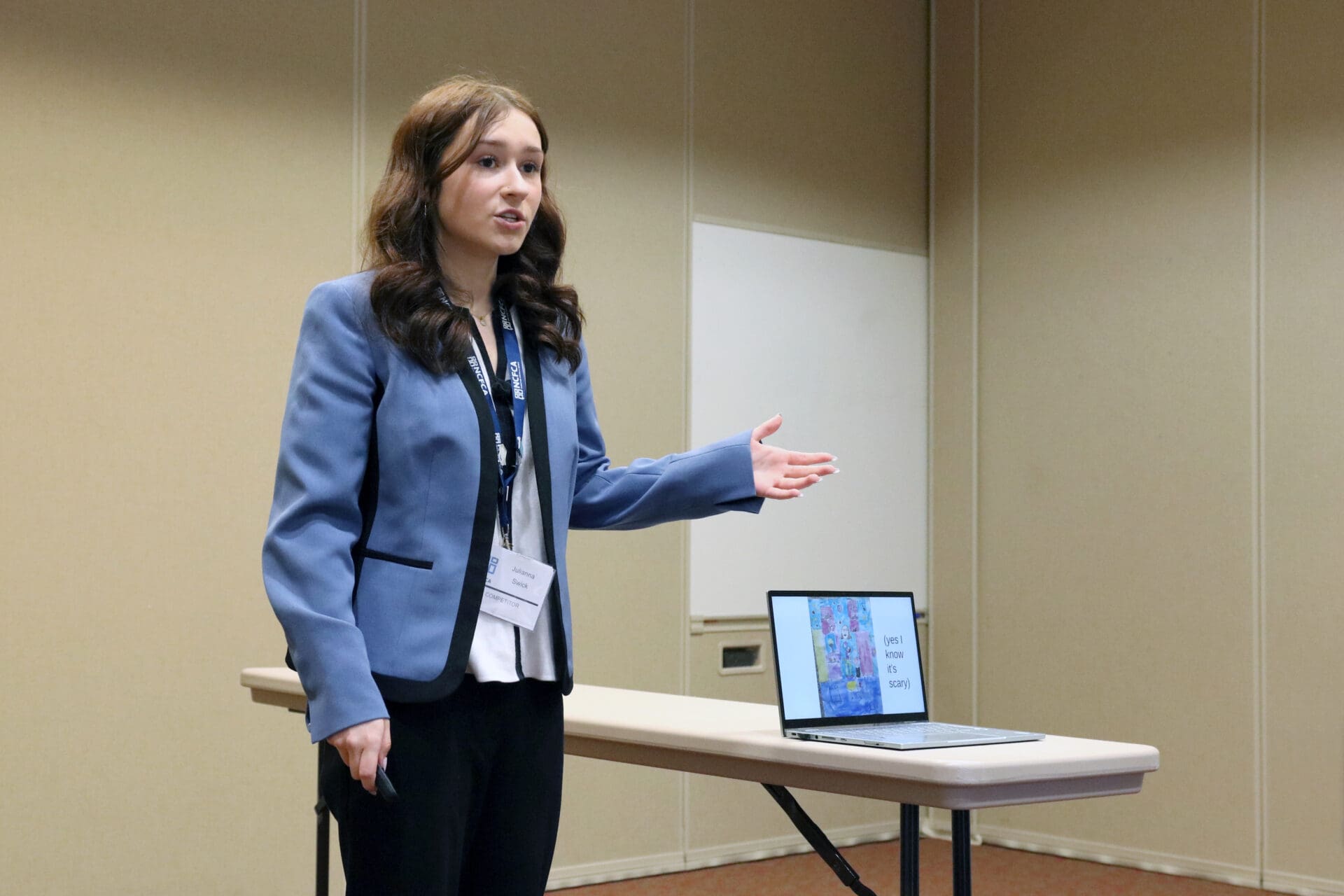
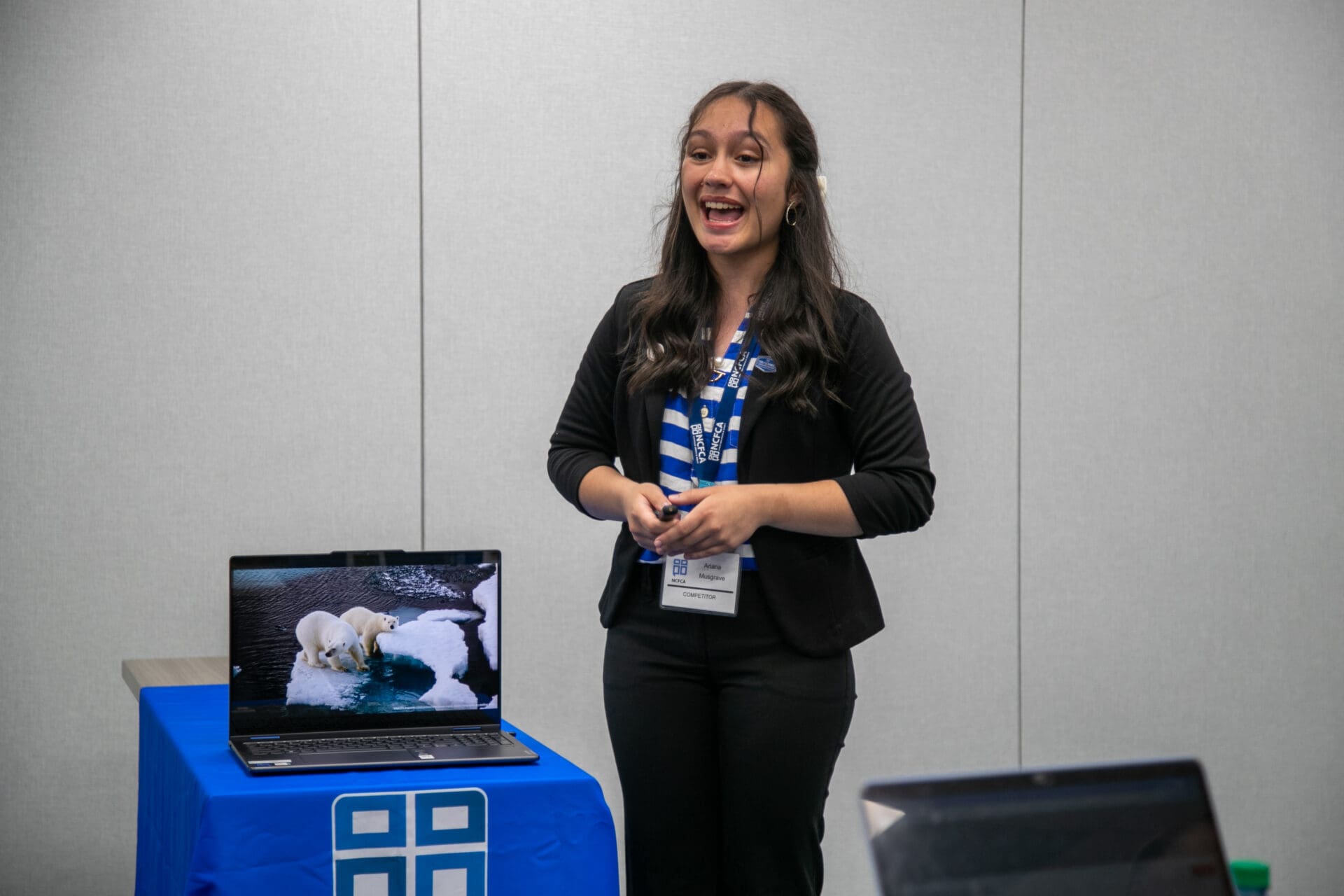
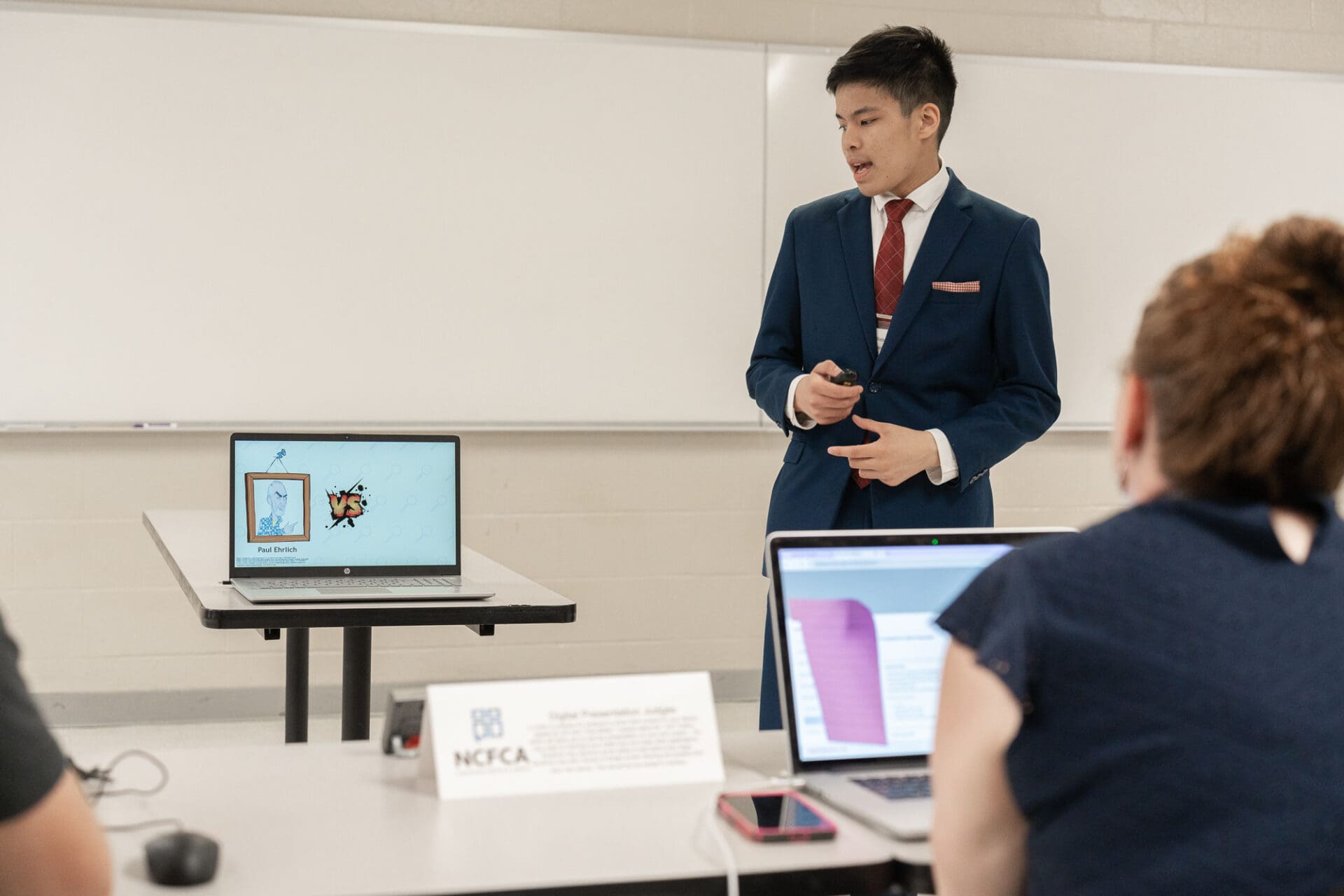
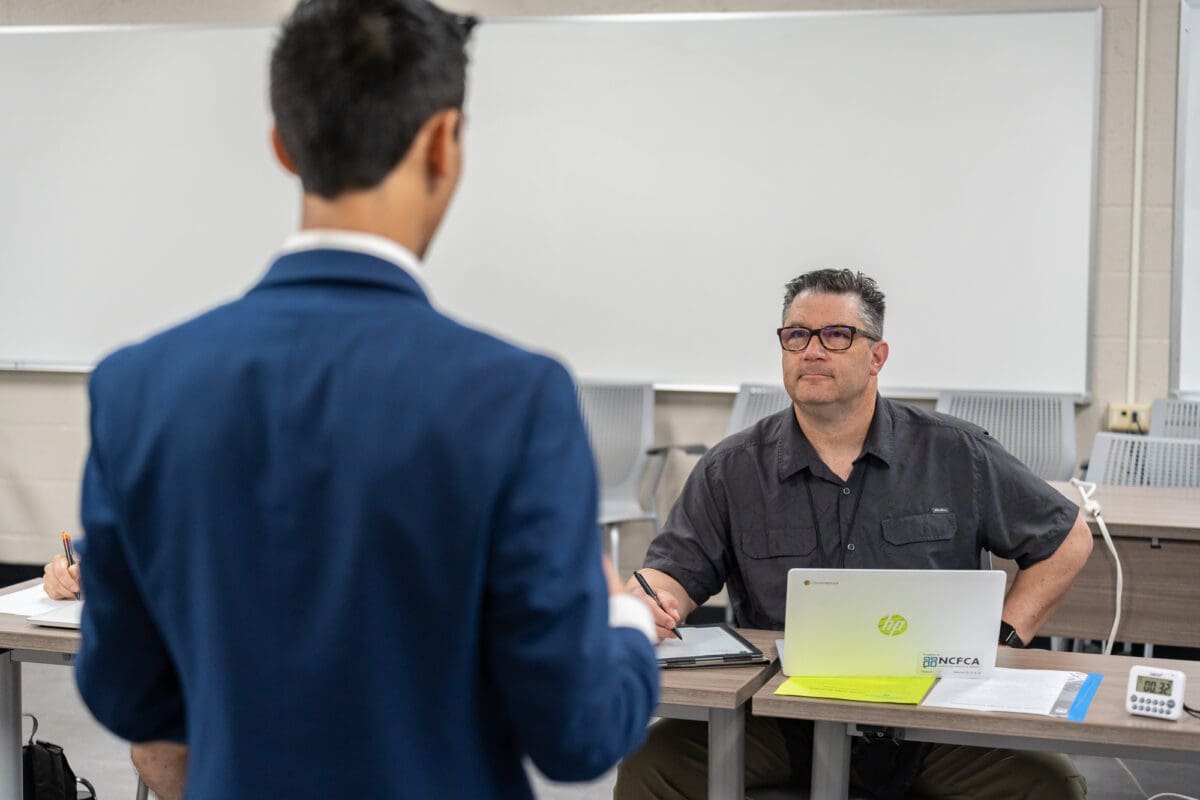
How This Event Works
Competitors prepare for this event by writing a script and creating a set of slides that they will display as they speak. The inclusion of digital visual aids allows for enhanced creativity and connection with the audience, and it prepares students well for future situations when they will need to present ideas in other settings.
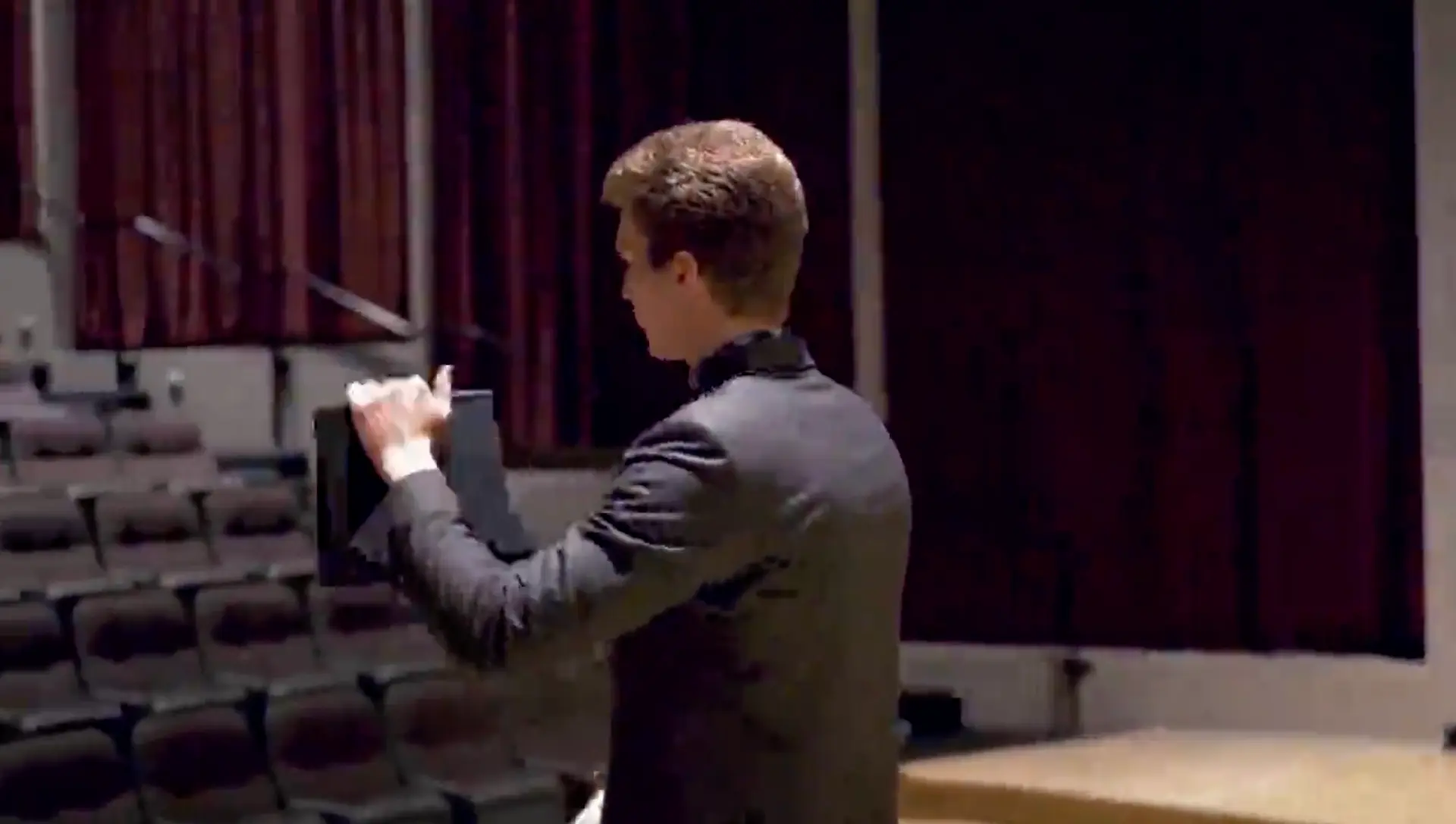
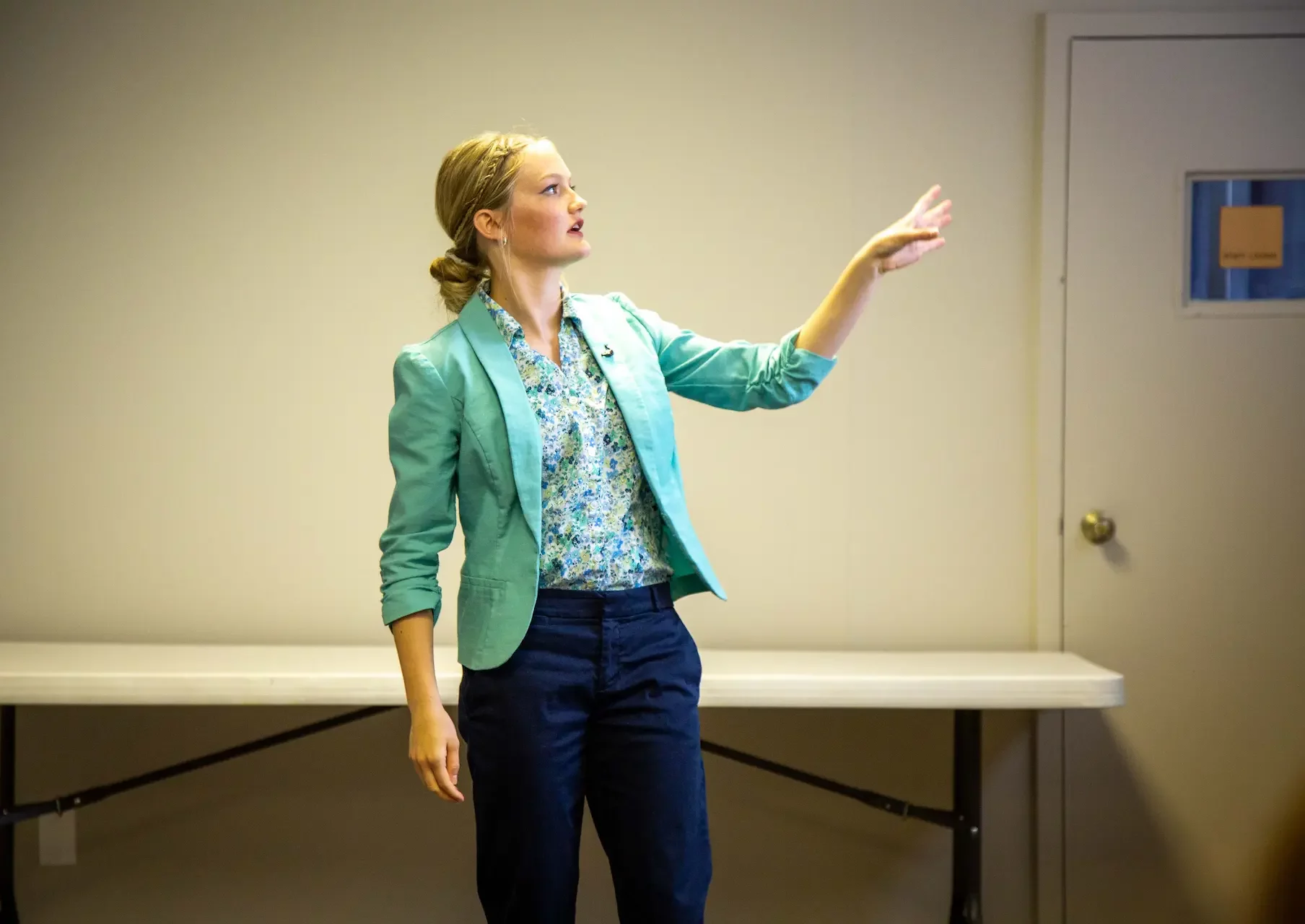
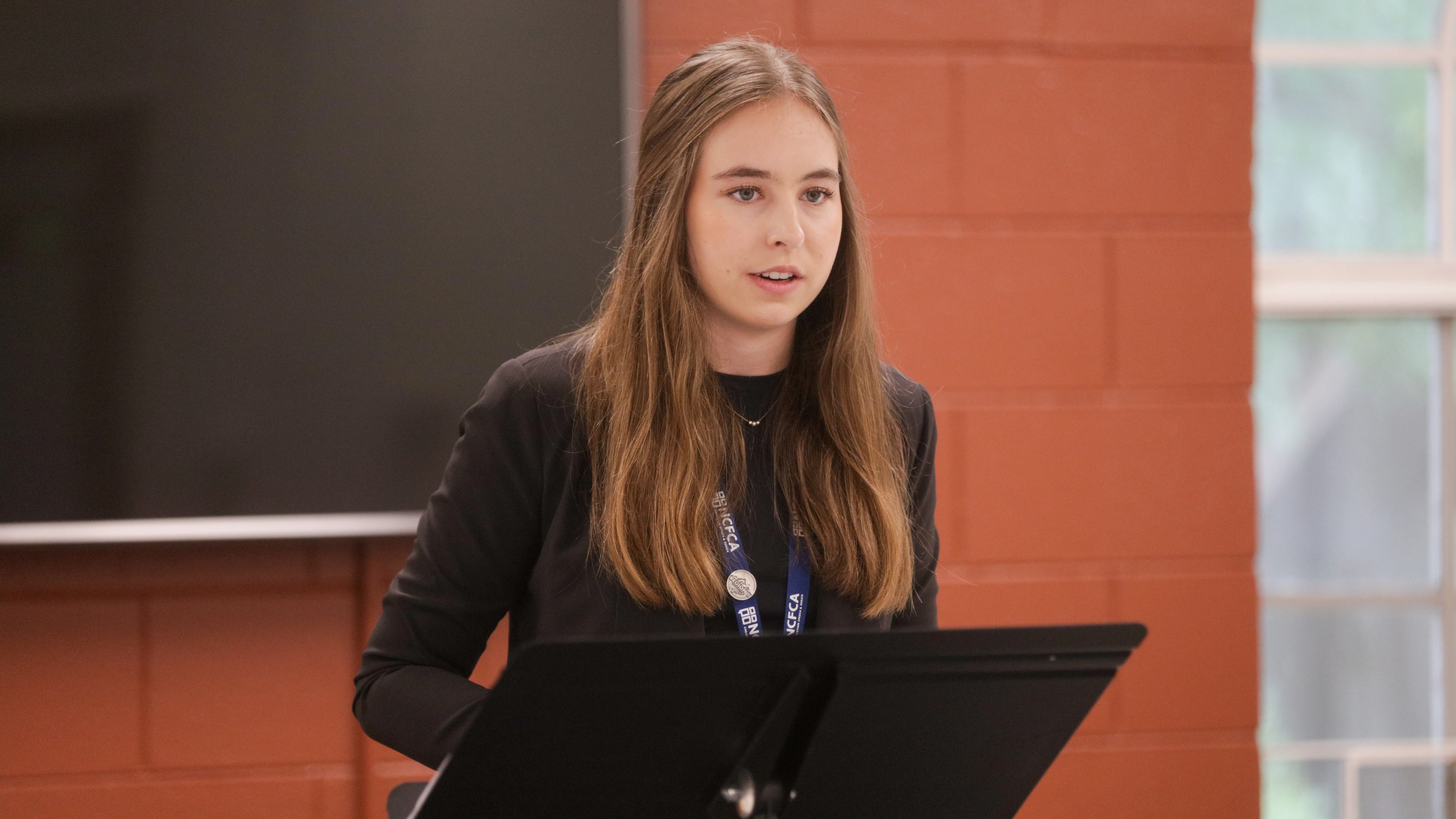
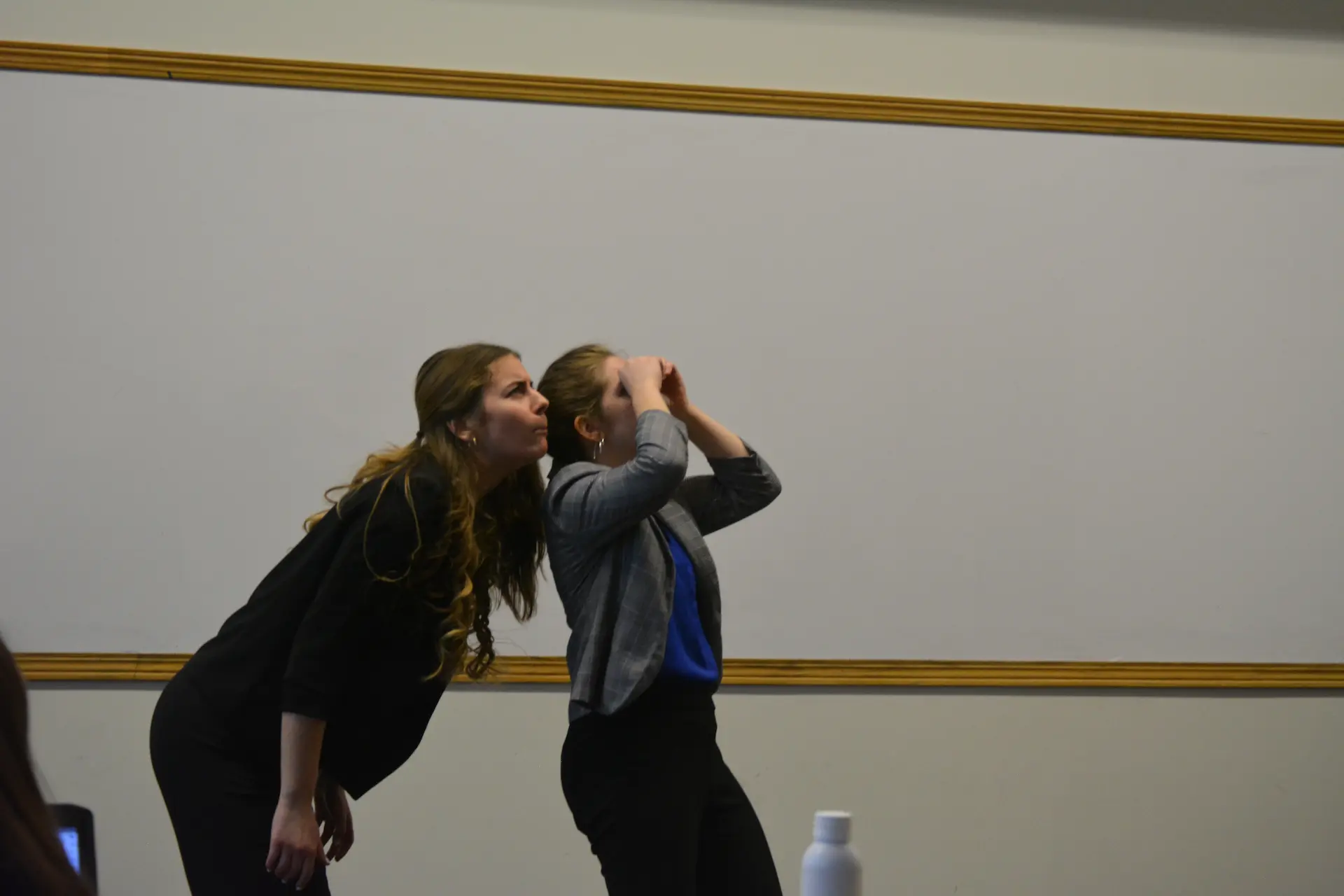
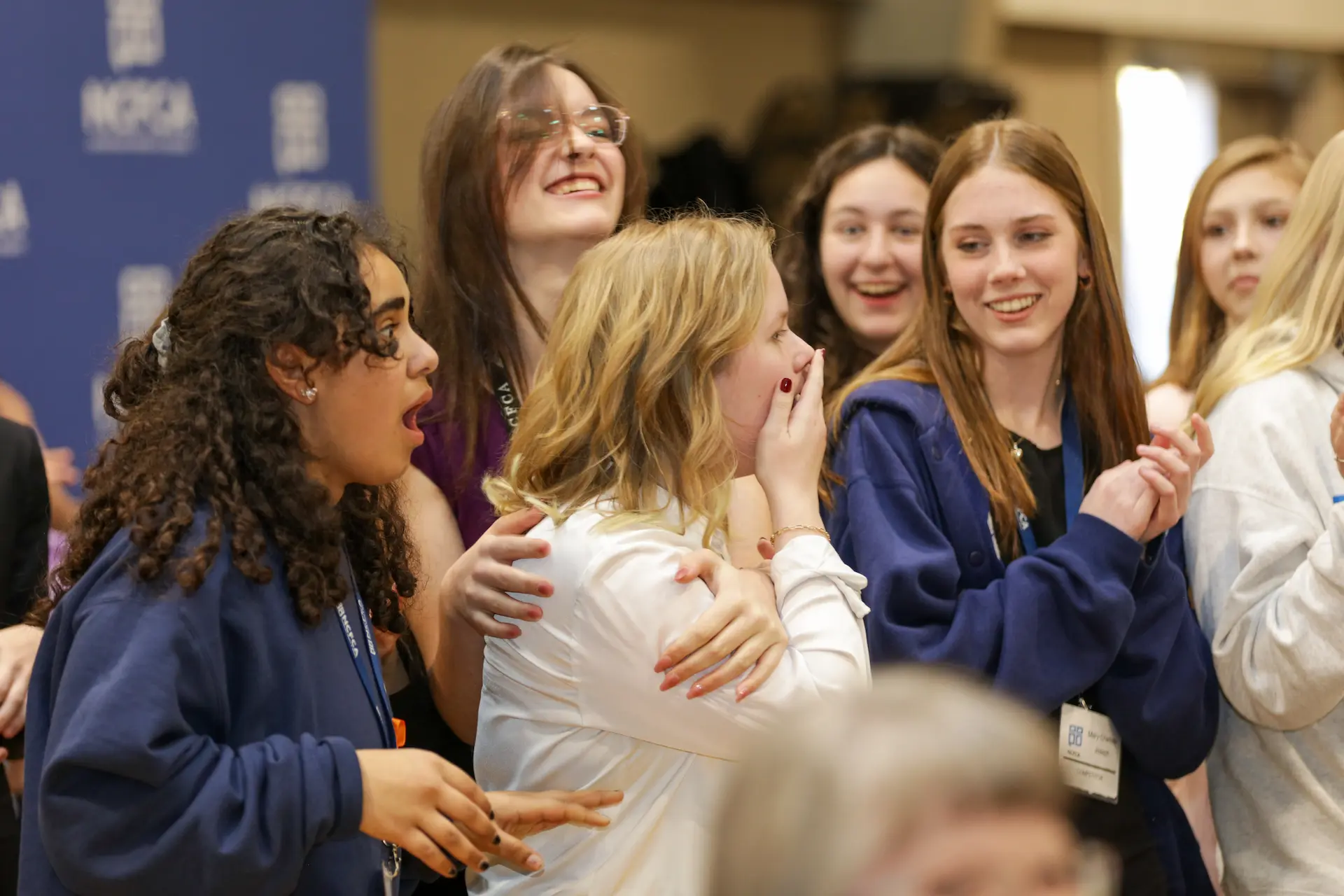
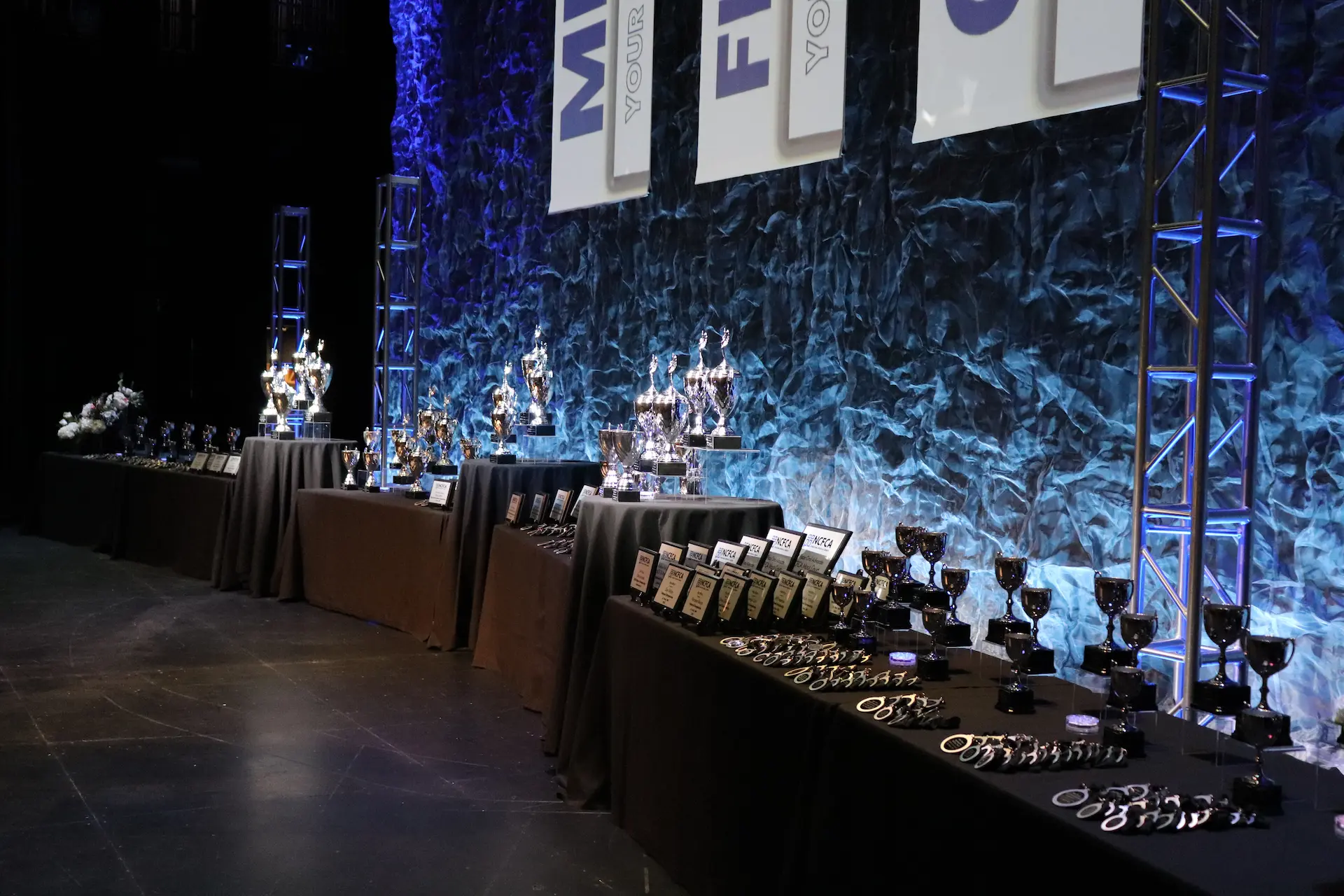
Digital Presentation FAQs
Why should I participate in Digital Presentation?
Digital Presentation allows students to inform or persuade the audience, like other Platform speeches. In Digital Presentation students will also:
- Learn to manage technology. Digital Presentation offers the opportunity to use digital visual aids, specifically digital slides created through software or apps like PowerPoint, Canva, Presi, or Keynote.
- Create a dynamic presentation. The speaker can communicate through both words and images making the presentation interesting, engaging, and memorable.
- Learn real-world skills. The real world applications of Digital Presentation are endless. Countless academic and professional opportunities can be enhanced by the use of digital visual aids. Digital Presentation enables students to master these skills now.
Digital Presentation Screen Sharing
When screen sharing using “presenter mode” the entire screen on the device will be consumed by the presentation. The competitor will no longer be able to see the tournament room, including the judges. However, judges can see both the competitor and the shared screen.
Presenters using a MAC may experience difficulty screen sharing. Mac iOS requires that you enable Screen Recording on Google Chrome. To turn this on, go to your settings – Security and Privacy – Screen recording and put a checkmark beside Google Chrome.
My screen is not sharing for Digital Presentation.
- Go to system preferences.
- Look for security settings.
- Scroll down to the “Screen Recording” option.
- Be sure that there is a checkmark next to the browser being used.
Duo and Digital Presentation Screen Mirroring for Online Tournaments
Mirrored video is standard for most online platforms. On the NCFCA platform, all speakers will see themselves mirrored on their own primary device screen, meaning that they will see themselves the way they would in a mirror. Judges and other observers will see a non-mirrored, normal view of the presenter. For most events, mirroring is natural and will go unnoticed, but in Duo and Digital presentation competitors will need to factor this phenomenon into their presentation plans.
Duo
For Duo competitors who choose to use separate devices, mirrored video creates a unique challenge for blocking, especially in the case of “interactions” between the video boxes. Competitors will see themselves as if in a mirror but will see their partner non-mirrored. The judges will not see either partner mirrored. If blocking plans would be impacted by the mirroring issue, competitors will either need to plan to share a device or plan to work around the mirroring. The competitor whose name comes first (Last, First) alphabetically will appear in the video box on the left when facing the screen and the partner on the right.
Digital Presentation
For Digital Presentation, mirroring impacts the presentation itself.
- If competitors use a separate screen facing the camera, any words or images will appear reversed to the competitor on the competition screen. However, the words and images will NOT appear reversed for judges and other observers.
- If a speaker uses the in-room screen sharing feature, the words will appear non-mirrored to both the speaker and judges.
Where can I find resources for speech and debate events?
Please visit the Resources page of the website and filter by Keyword, Category, Role, or Event.
Where can I find rules for speech and debate events?
Please visit the Competition Event Rules page.
Find Your Voice, Shape Your Future
Join us as you embark on a transformative journey to become a powerful and effective communicator.
